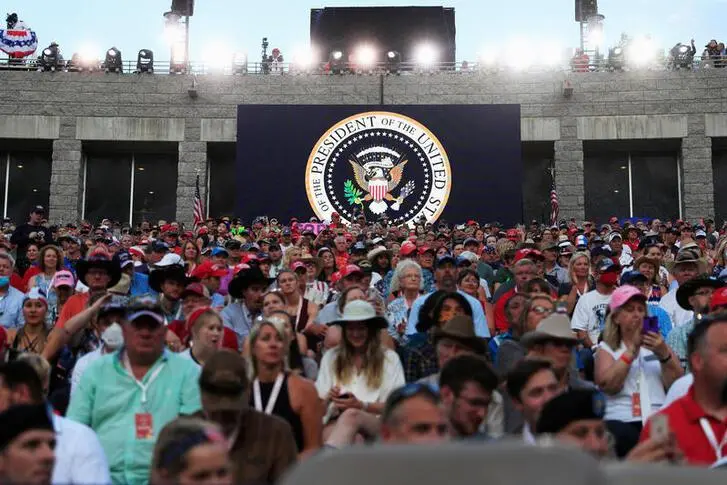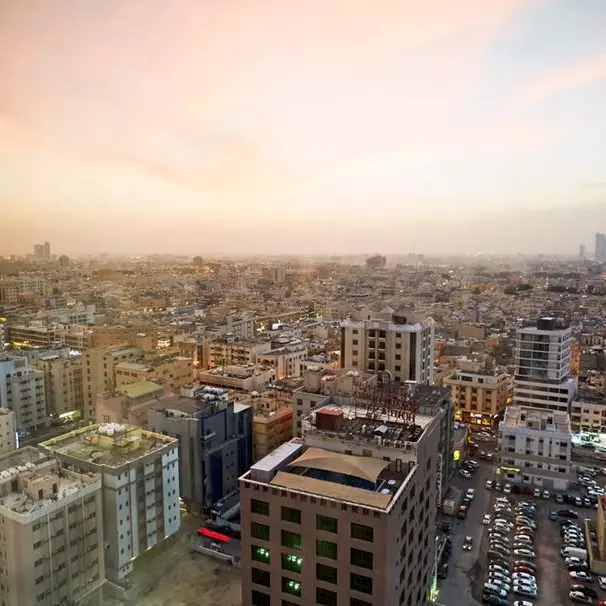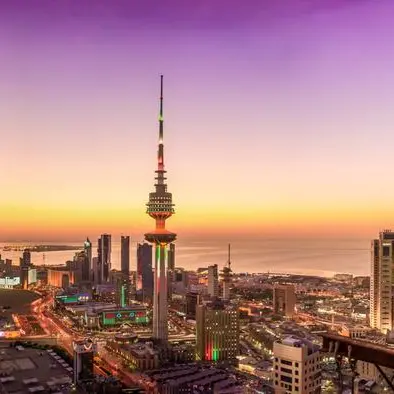PHOTO
The US celebrates its Independence Day on July 4 amid a perfect storm of crises. On the face of it, the country seems divided on all kinds of issues, from the wearing of masks to the defunding of police forces.
These distractions are likely to provide competitors and malign forces around the world with an opportunity to flex their muscles and project power. Will this pass? Will the US recover its firm economic, geopolitical and internal political footing? Or is the American century well and truly over?
The US of today is divided along a number of lines, including Republican versus Democrat, and race. As the ongoing awakening about the legacy of the Civil War and the slave trade continues, the tenor of the debate has shifted to a new, perhaps more volatile, phase.
With statues of colonial and Confederate historical figures being torn down, and the administration seemingly out of touch with domestic realities, some Americans have a growing sense of doom about the months ahead.
As the country continues to battle the coronavirus, the toll it is taking, on personal and economic levels, is high and perhaps permanent. Some Americans seem to be willfully ignorant of the pathogen in their midst, which is politicizing the issue on the basis of “liberty or death.” Even many “intellectuals” initially failed to take seriously the threat posed by the virus. The resultant finger pointing is damaging the republic instead of healing it.
It is clear that, unlike other societies around the world, Americans are struggling to coexist with the pathogen. Combined with the current sociocultural upheaval in the country, the disease presents further challenges to US foreign policy and security requirements. As things stand, America cannot, and will not, maintain its global presence and role.
The position of the US is being challenged by a number of states and nonstate actors who consider the country to be at its weakest. The US military has been forced to change the way it deploys forces and carries out operations as a result of the pandemic.
One country very much on the minds of US policymakers right now is China. When the COVID-19 outbreak began, Chinese foreign policy turned a net loss into a win.
Given that China is emerging from the pandemic sooner than other countries because it was the first affected by the virus, Beijing can use this early recovery to press its advantage over Western nations, which will remain weakened for longer. One sign of this is the increased Chinese aggression in Hong Kong, where the new National Security Law has absorbed Hong Kong into China proper.
Because the US will be distracted by internal politics and the coronavirus for some time yet, Beijing is likely to be eyeing a takeover of Taiwan next year, on the anniversary of the Chinese revolution. The seizure of Hong Kong increases the possibility of this.
China is not the only power that the US needs to worry out. In the coming year, attacks on the country and its interests are likely to increase through a combination of the coronavirus and geopolitics.
Russia, Turkey and even European countries that are traditional allies are capable of applying leverage against the US through politics, economics — and by simply choosing to ignore Washington.
For example, China and Iran are spreading misinformation online about the coronavirus. The Iranians are attempting to raise tensions with Washington at a time of great instability in the Arabian Gulf. Their intention is to show the West that their regime is powerful and can survive any challenge.
Russia, where President Vladimir Putin recently won a mandate to remain in power until 2036, is also taking advantage of the chaos in the US by attempting to rewrite history to depict the Soviet Union as the victor of the Second World War, not the US. This ongoing campaign will be stepped up to gain the attention of other states who view Moscow as a better guiding light than Washington.
America’s enemies are using cyber warfare to attack infrastructure and banking systems. Militant forces, including Al-Qaeda, Daesh and far-right extremists, are using technological tools to disrupt business, crash systems, steal, and distribute malware. They represent a growing threat to homeland security.
The US is facing an epiphany as a result of a clash of values and fundamental disagreements about what constitutes an infringement of liberty, as some believe that their personal freedoms are being trampled by social-distancing, face masks and self-isolation orders — measures designed to protect them.
Similar sentiments can be found around the world but the problem in the US is inherent irony of the cry “give me liberty or give me death.” In the current climate, the freedom to do what you want carries with it the risk of severe illness of death. It is a statement of intent that bodes ill for the wider spread of COVID-19 and a devastating second wave in the fall.
Independence Day this year is a test of Americans’ spirit. Will they be willing and able to follow safety precautions, or will they ignore rules to preserve their freedom, even if places their lives at risk? Enemies will be watching carefully, looking for gaps in security that they can exploit to undermine America even further. Labor Day, Sept. 7, will present another opportunity for a potentially potent mix of pathogen, politics and the pursuit of freedom, which would represent yet another challenge for Washington.
The US undoubtedly faces a moment of truth. But is the American Century really over? Probably not. But the era of the US as a global leader, a beacon of hope or a land of opportunity is likely to be forever changed.
Americans need to sort themselves out in terms of sociocultural recognition of past tragedies, and renew their declaration of independence in pursuit of a better, brighter future.
- Dr. Theodore Karasik is a senior adviser to Gulf State Analytics in Washington, D.C. He is a former RAND Corporation Senior Political Scientist who lived in the UAE for 10 years, focusing on security issues. Twitter: @tkarasik
Copyright: Arab News © 2020 All rights reserved. Provided by SyndiGate Media Inc. (Syndigate.info).





















